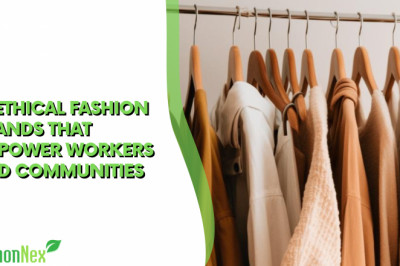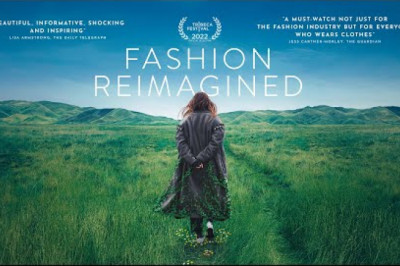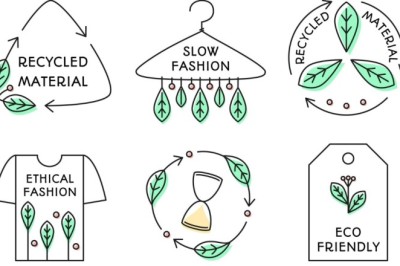views

The term "sustainable fashion practices" refers to the use of environmentally friendly and socially conscious methods in the creation, marketing, and use of apparel. One of the most polluting businesses in the world is the fashion industry, so resolving the negative effects on society and the environment requires the adoption of sustainable fashion methods.
Through raising awareness, disseminating information and skills, and driving behavior change, education is crucial in advancing sustainable fashion practices. The adoption of sustainable lifestyle practices can be influenced by education, which can assist people in making well-informed fashion decisions.
Additionally, it can produce a group of experts that will push for legislation, research, and innovation in the fashion sector to advance sustainability.
The Need for Education in Sustainable Fashion Practices
-
Lack of awareness
The effects of the fashion business on the environment and society are not well known by consumers. Fast fashion has made a considerable contribution to the pollution, exploitation, and depletion of natural resources in poor nations. Consumer awareness can be raised and empowered to make knowledgeable judgments regarding their wardrobe choices by providing them with information on these topics.
-
Insufficient knowledge
The lack of awareness of sustainable fashion among customers and industry professionals is another factor supporting the need for education in promoting these practices. Both the general public and industry professionals might not be able to recognize sustainable fashion products or have the knowledge and abilities to integrate sustainable practices into their businesses. The information and abilities needed to make wise decisions and advance sustainable practices in the fashion business can be acquired through education.
-
Need for behavioral change
The fashion business can benefit from behavioral changes brought about by education. Since many customers and business people are used to quick fashion, it could be hard to change. Education can aid in bringing about a change in attitudes and actions in favor of more sustainable practices, including waste reduction, the use of eco-friendly materials, and the promotion of moral and just labor practices. It is feasible to inspire positive behavior change and advance more sustainable fashion practices by advocating them through education.
Strategies For Promoting Sustainable Fashion Practices Through Education
-
Curriculum Integration
Integrating sustainability ideas into fashion design and merchandising curriculum is one of the best ways to encourage sustainable fashion practices through education. This will give fashion students the know-how and abilities they need to create sustainable processes and goods across the whole supply chain. Principles of environmental, social, and economic sustainability can be incorporated into course materials including lectures, case studies, and projects.
-
Workshops and Seminars
Disseminating information to students, teachers, and business professionals can be accomplished by planning workshops and seminars on sustainable fashion methods. These gatherings give specialists a venue to discuss sustainable fashion methods, exchange ideas, and share their experiences. Innovative business strategies, ethical sourcing, and production methods, and the most recent trends and technologies in a sustainable fashion are all available to participants.
-
Awareness Campaigns
Various awareness campaigns can be used to spread knowledge about sustainable fashion practices. A wide range of stakeholders, including students, teachers, business professionals, and the general public, might be the focus of these initiatives. Events like fashion shows and exhibitions showing eco-friendly clothing, social media marketing, and public lectures could all be part of a campaign. These ads urge consumers to choose their clothing carefully and intelligently by raising awareness of the value of sustainable fashion methods.
-
Industry Collaboration
Promoting sustainable fashion methods can be effectively done by working with industry stakeholders. To create and promote sustainable practices, educational institutions can work with industry participants including producers, sellers, and designers. Students can benefit from industry relationships by learning about the newest fashion trends, technologies, and best practices. Educational institutions can benefit from collaboration by bridging the gap between academia and business and by ensuring that sustainable fashion principles are followed across the whole supply chain.
Benefits Of Promoting Sustainable Fashion Practices Through Education
-
Environmental benefits
By encouraging the use of eco-friendly materials, cutting waste, and lowering carbon emissions, supporting sustainable fashion practices through education can help lessen the environmental effect of the fashion sector.
-
Economic benefits
By encouraging more efficient and economical production techniques, minimizing resource consumption, and lowering the overall cost of production, education in sustainable fashion practices can also have a positive economic impact on the industry.
-
Social benefits
By supporting fair labor standards, safer working conditions for employees, and ethical material sourcing, promoting sustainable fashion practices through education can also have a positive societal impact. This may boost consumer confidence and improve the fashion industry's reputation.
see also- Innovative Materials and Techniques in Sustainable Fashion Design
Challenges And Limitations
-
Lack of resources
The absence of financing, infrastructure, and technology is one of the biggest obstacles to promoting sustainable fashion practices through education. Budget constraints frequently prevent educational institutions from funding sustainability efforts, which makes it challenging to undertake initiatives that encourage the use of sustainable fashion. Additionally, sustainable fashion methods call for specialized technology tools that can be costly and out of reach for educational institutions with little funding.
-
Resistance from the fashion industry
Because some stakeholders have been resistant, the fashion industry has been sluggish to implement sustainable fashion techniques. It might be challenging for educational institutions to properly promote sustainable fashion practices because some businesses prioritize profitability above sustainability. Additionally, as fashion trends are continuously evolving, persuading customers to adopt sustainable fashion methods is difficult.
-
Limited reach and impact
Especially if the target audience is limited to students and teachers, educational institutions may only have a limited impact. As a result, it's essential to broaden the audience for sustainable fashion education to include business leaders, decision-makers in government, and the general public. Sustainable fashion approaches might not be fully embraced and applied throughout the entire supply chain without the participation of all stakeholders.
Final Words
In conclusion, promoting sustainable fashion practices through education is crucial in addressing the environmental and social challenges facing the fashion industry. Strategies such as curriculum integration, workshops and seminars, and awareness campaigns can effectively disseminate knowledge about sustainable fashion practices to students, faculty, industry professionals, and the general public.
The benefits of promoting sustainable fashion practices through education are numerous and include environmental, economic, and social benefits. Therefore, stakeholders in the fashion industry need to prioritize sustainable fashion education to ensure the sustainability of the fashion industry in the long run.
By working together, educational institutions, industry players, and consumers can make significant strides toward a more sustainable future for fashion.











Comments
0 comment